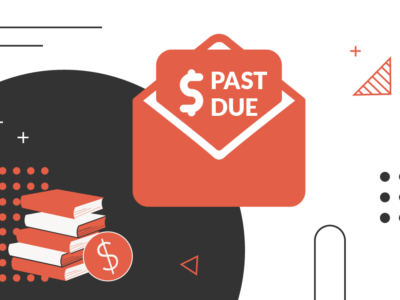Who’s To Blame For The Student Loan Crisis?
Who’s to blame for the student loan crisis? The Government? Colleges? Student Loan Servicers? Borrowers?
Mark Kantrowitz is an expert on student financial aid, scholarships, 529 plans, and student loans. He has been quoted in more than 10,000 newspaper and magazine articles about college admissions and financial aid. Mark has written for the New York Times, Wall Street Journal, Washington Post, Reuters, USA Today, MarketWatch, Money Magazine, Forbes, Newsweek, and Time. You can find his work on Student Aid Policy here.
Mark is the author of five bestselling books about scholarships and financial aid and holds seven patents. Mark serves on the editorial board of the Journal of Student Financial Aid, the editorial advisory board of Bottom Line/Personal, and is a member of the board of trustees of the Center for Excellence in Education. He previously served as a member of the board of directors of the National Scholarship Providers Association. Mark has two Bachelor's degrees in mathematics and philosophy from the Massachusetts Institute of Technology (MIT) and a Master's degree in computer science from Carnegie Mellon University (CMU).

Who’s to blame for the student loan crisis? The Government? Colleges? Student Loan Servicers? Borrowers?

How much does your student loan interest rate really matter when it comes to repaying your student loan debt? We break it down.

Can President Trump claw back student loan forgiveness? Understand the legal limits and what borrowers need to know about future forgiveness changes.

A new report uncovers why published college costs often fall short of reality, leaving students with financial gaps that exceed $10,000.

When a borrower defaults on federal student loans, the only one hurt is the borrower, Here’s what you need to know about strategic default for student loans.

Unlike other forms of generosity, scholarship funds can be taxable to recipients. Learn the rules concerning taxable scholarships.

New student loan forgiveness proposal offers relief for borrowers in financial hardship with multiple ways to qualify.

Speak-writing essays, comparing exam score ranges, and using the college affordability index will improve your child’s chances of getting into an ideal college.

Wondering if it would be beneficial to use a 529 plan for estate planning? We explain when that strategy could make sense and how to do it.

A look at how to calculate the net price of college – or in other terms, how much college really costs!

Whether you should refinance your student loans or not depends on your loan type, interest rate, and more.
The College Investor® provides the latest news and analysis for saving and paying for college, student loan debt, personal finance, banking, and college admissions.